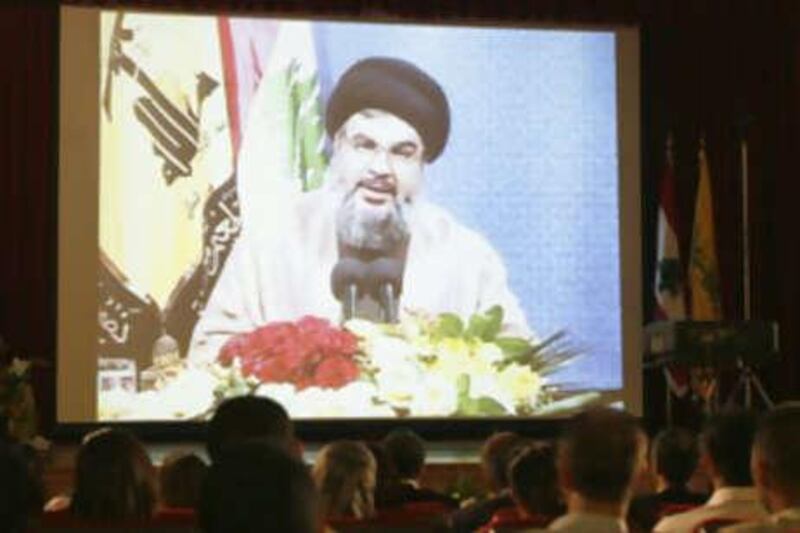LONDON // The British prime minister, Gordon Brown, took harsh action yesterday against the Lebanese-based group Hizbollah, punishing it for supporting terrorist activities in Iraq and the Palestinian territories. The action against Hizbollah's military wing will, if approved by parliament, make it a crime to join or support the military wing of the radical group, which fought a bloody conflict with Israel two years ago.
Mr Brown told lawmakers at the House of Commons that Britain will impose a ban on "Hezbollah's entire military wing on the sole grounds of new evidence of its involvement in terrorism in Iraq and in the occupied Palestinian territories." Hezbollah trainers are offering Shiite militia in Iraq specialist help in using roadside bombs, said Tony McNulty, Britain's minister in charge of fighting terrorism. Britain lists 59 groups as banned terrorist organizations, including al-Qa'eda and the Kurdistan Workers' Party, or PKK. Hezbollah's external security organization has been listed since 2001.
Mr McNulty said the government is taking action amid concerns over Hizbollah's influence over militia violence in southern Iraq, where Britain has 4,000 troops based on the fringes of the oil-rich city of Basra. "Hizbollah's military wing are providing active support to militants in Iraq who are responsible for attacks both on coalition forces and on Iraqi civilians, including providing training in the use of deadly roadside bombs," Mr McNulty said.
He said the group's military wing also provides support to Palestinian militants. Hizbollah leader, Sheikh Hassan Nasrallah, speaking by video link to reporters in Beirut, said the decision came as no surprise. He described Britain as "a main partner in uprooting the Palestinian people and establishing the state of Israel." Mr Brown insisted that Hizbollah's social and political work in Britain will be unaffected, but the ban will place tight limits on fundraising. It will also mean that individuals can be prosecuted in the UK for joining Hizbollah's military wing or arranging meetings for it in Britain.
"We continue to call on Hizbollah to end its status as an armed group and to participate in the Lebanese democratic process and to do so on the same terms as other political parties," Mr Brown said. He insisted that the rebuke will not harm efforts to persuade Hizbollah to disarm, or damage work on Middle East peace. Mark Malloch-Brown, Britain's minister for Africa, Asia and the United Nations, previously suggested that Britain should consider holding talks with Hizbollah, despite the government's revulsion over its activities. But Britain's foreign office said the government has no contact with the group. "Our objective remains to encourage them to participate in Lebanese politics as a fully democratic political party," said a foreign office spokesman on condition of anonymity. Last month, British lawmakers formally removed the Iranian opposition group the People's Mujahedeen of Iran from the terror group list after the Court of Appeal ruled in May that the group should no longer be banned because it has renounced violence.
*AP





